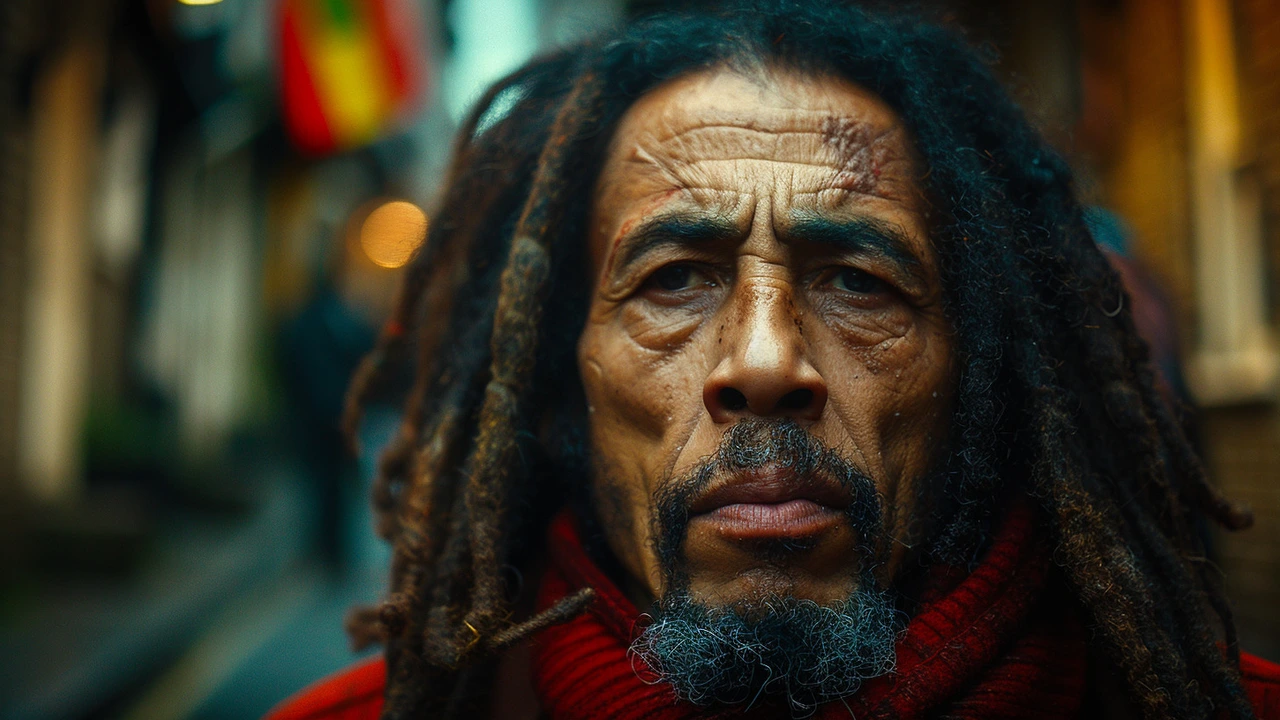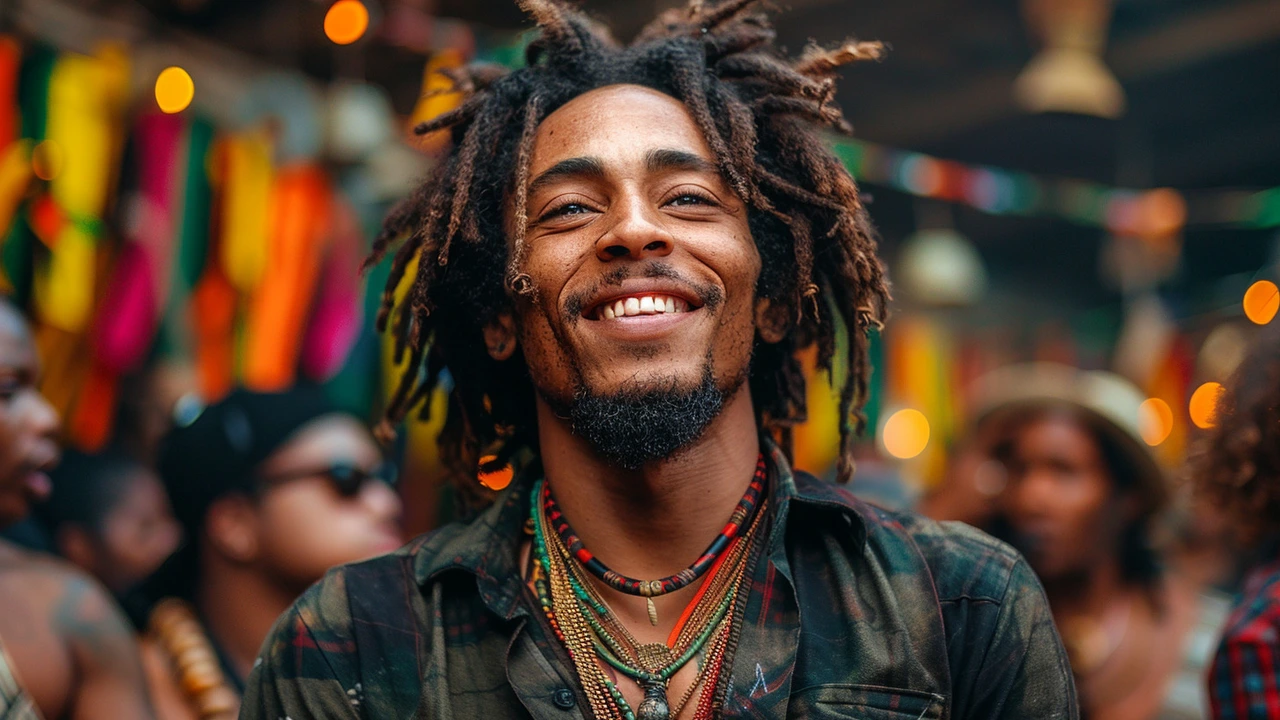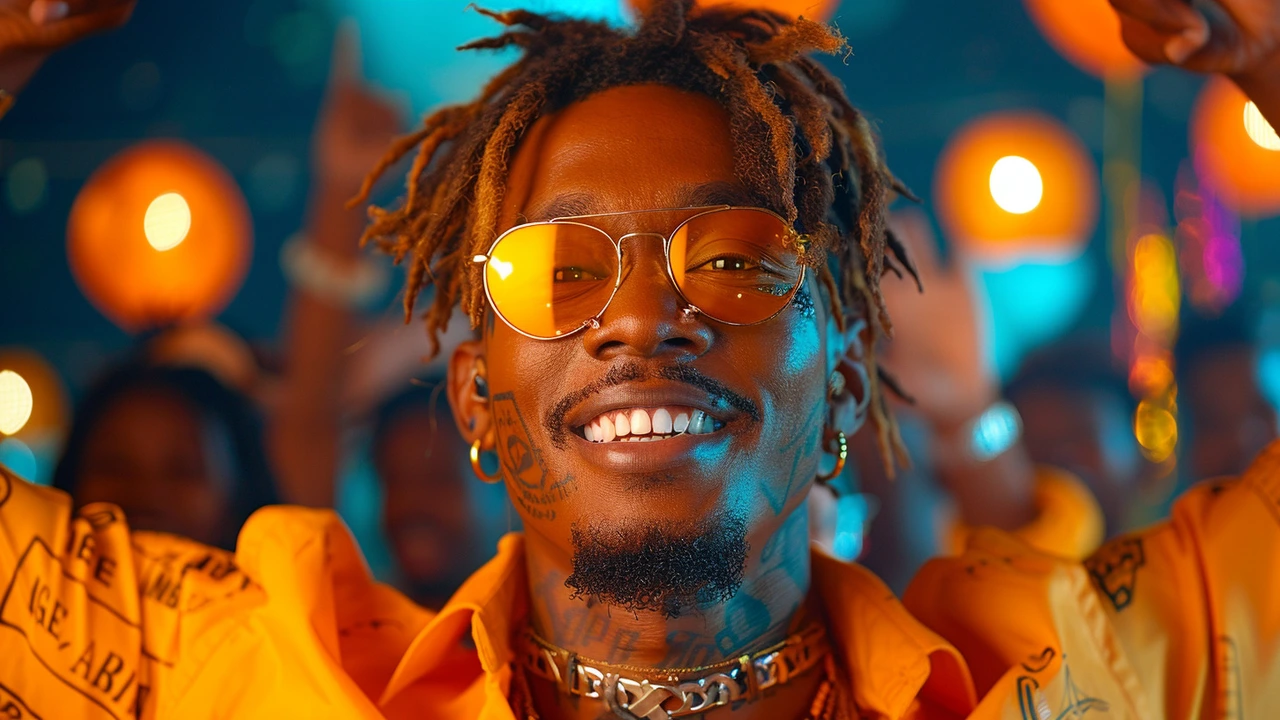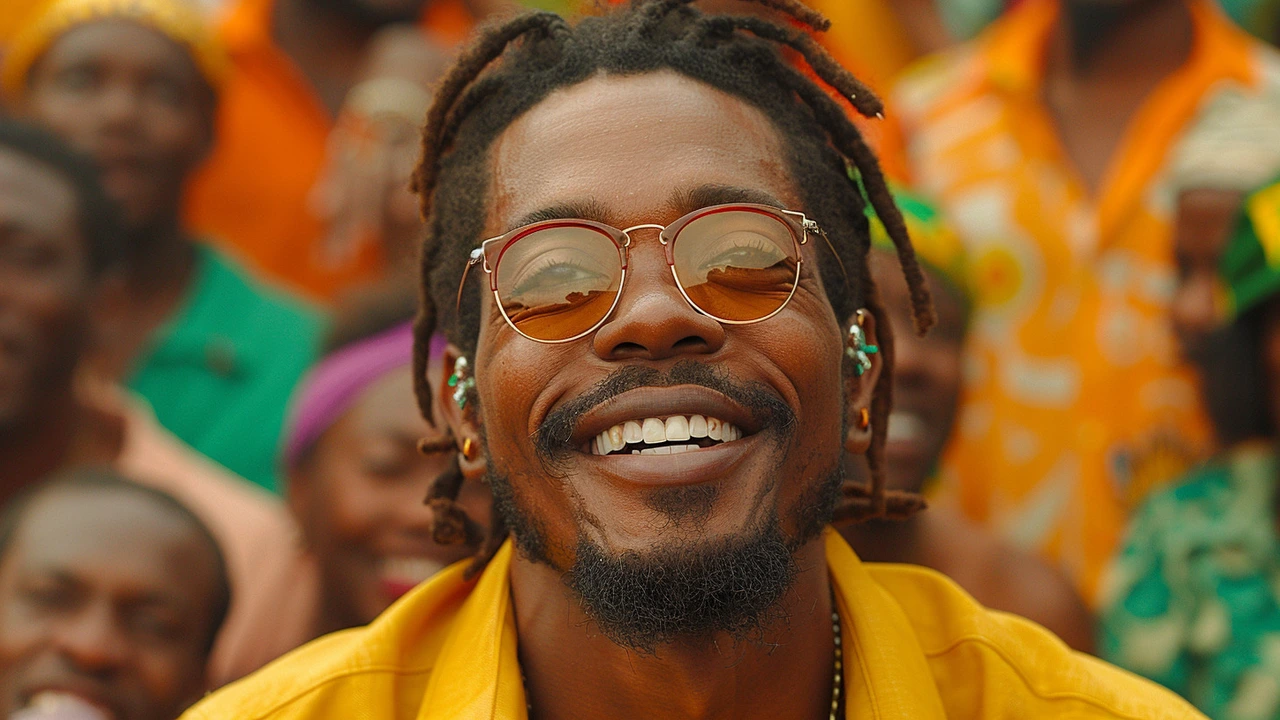Reggae music, with its deep roots and soulful vibes, has a way of touching people across the globe. From its humble beginnings in Jamaica to becoming a worldwide phenomenon, reggae has left an indelible mark on music history.
Understanding how reggae evolved requires a look at its cultural and historical origins. The genre didn't just appear overnight; it emerged from a rich tapestry of influences and a tumultuous social backdrop. It was a voice for the voiceless, offering both solace and a means of rebellion.
Origins and Early Influences
Reggae music finds its roots deeply embedded in the cultural and historical context of Jamaica. The genre's inception dates back to the late 1960s, a period marked by significant social change on the island. Drawing inspiration from earlier Jamaican musical forms like ska and rocksteady, reggae quickly evolved into a distinct genre with a unique rhythm and beat.
Jamaica, a country rich in musical diversity, had a soundscape brimming with influences from African, Caribbean, and American music. Ska, with its fast tempo and offbeat rhythms, laid the groundwork for reggae. As the socio-political environment in Jamaica changed, the music also began to slow down, reflecting a departure from the upbeat nature of ska to a more relaxed and contemplative sound known as rocksteady. This transition period played a crucial role in setting the stage for reggae's emergence.
One of the defining characteristics of reggae is its rhythm, known as the 'one drop.' This drum pattern emphasizes the third beat in a measure, creating a laid-back and syncopated rhythm that is instantly recognizable. In addition to its rhythm, the use of bass guitar in reggae is prominent and plays a melodic role, unlike in some other genres where it primarily provides harmony. These musical innovations were instrumental in giving reggae its unique sound.
The rise of reggaes coincides with the turbulent political and social climate of Jamaica during the 1960s and 1970s. This period was characterized by the fight for independence and a burgeoning sense of national identity. Reggae became a voice for the marginalized, addressing issues of poverty, racism, and social injustice. The lyrics often carried powerful messages of resistance and universal love, earning the genre a reputation for being both spiritual and rebellious.
"Reggae music, with its soulful melodies and poignant lyrics, serves as a powerful commentary on the social realities of Jamaica," said noted reggae historian Lloyd Bradley.
The influence of Rastafarianism on reggae music cannot be overlooked. This religious and social movement, which began in Jamaica in the 1930s, had a significant impact on the genre. Many reggae musicians were adherents of Rastafarianism, and their beliefs permeated their music. The themes of spiritual awakening, African identity, and liberation from oppression are common in reggae, reflecting the core tenets of Rastafarian philosophy.

Pioneers and Key Figures
When one thinks of reggae music, Bob Marley is almost certainly the first name that comes to mind. This Jamaican icon is known worldwide not only for his music but also for his role in popularizing the genre internationally. Marley's influence extends beyond his melodious voice. His lyrics often tackled social justice issues, making his songs anthems for change. His album 'Exodus' was named Album of the Century by Time magazine in 1999, underscoring his impact on the music world.
Peter Tosh, another trailblazer, was a key member of The Wailers alongside Marley. Tosh's defiant spirit shone through in his solo career, where he continued to push boundaries with songs like 'Legalize It,' advocating for the legalization of marijuana. He was sometimes considered the more militant voice among reggae artists, aiming to inspire through his unwavering stand on social issues.
Then there’s Bunny Wailer, a founding member of The Wailers, who also had an illustrious solo career. His work often drew from his deep Rastafarian faith, blending spiritual messages with reggae rhythms. Bunny's album, 'Blackheart Man,' remains a seminal work in the genre, showcasing his unique voice and powerful storytelling abilities.
The Roots Radics and Beyond
Moving beyond The Wailers, the Roots Radics are another key element in reggae's history. This studio band became known for their rock-solid backing tracks that powered the hits of many famous reggae vocalists in the late '70s and early '80s. They worked with artists like Gregory Isaacs, whose smooth voice and romantic lyrics earned him the nickname 'Cool Ruler,' and 'Night Nurse' remains one of his most famous songs.
The legendary Lee 'Scratch' Perry also deserves mention. Perry was a visionary producer whose innovative techniques in the studio gave rise to the 'dub' sound. His Black Ark Studio was a breeding ground for some of the most influential tracks in reggae history. Perry's work expanded the possibilities of what reggae music could be, incorporating layered sounds and echoing rhythms to create a unique auditory experience.
Women in Reggae
It’s essential to highlight the contributions of women in reggae, often underrepresented in discussions. Rita Marley, Bob Marley’s wife, not only supported the message and legacy of her husband but also made her mark through her solo work and as a member of the I-Threes, Bob Marley's backing vocal group. Then there's Marcia Griffiths, renowned both for her solo career and as part of the duo Bob and Marcia. Her hit single 'Electric Boogie' became an international dance craze, known today as the 'Electric Slide.'
Bringing these figures to light reveals the diverse and dynamic nature of reggae music. These key pioneers didn’t just shape a genre; they amplified voices, told stories that needed to be heard, and connected hearts and minds across continents.

Reggae's Global Spread
The journey of reggae music beyond the shores of Jamaica is a tale of cultural exchange, resilience, and universal appeal. It all began in the late 1960s and early 1970s, a period marked by social change and political upheaval. During this time, reggae started to resonate with people outside the Caribbean, thanks to island immigrants who brought their music with them to places like the United Kingdom and the United States.
One of the earliest and most significant moments in reggae's international expansion occurred in 1972 when the Jamaican film "The Harder They Come" was released. Starring Jimmy Cliff, the film not only showcased the raw energy and rebellious spirit of reggae but also set the stage for the genre's widespread recognition. The movie’s soundtrack became a hit, and suddenly, reggae was on the world map.
In the UK, a large Jamaican diaspora played a crucial role in popularizing reggae. By the mid-70s, artists like Bob Marley and the Wailers were performing in front of thousands of fans in London. Marley’s anthems of peace, love, and social justice struck a chord with British youth. In 1977, his album “Exodus” became a massive hit in the UK and stayed on the charts for 56 consecutive weeks.
Quote:
"The acceptance of reggae music overseas shows that the message of reggae is plain and simple, and everyone can understand it," said Bob Marley.
As Marley’s star rose, so did the profile of reggae. Tours and concerts in Europe, North America, and Africa helped spread the music even further. Reggae bands like Steel Pulse and UB40 from the UK started to emerge, putting their own spin on the sound and bringing it to new audiences. In the United States, reggae fused with jazz, rock, and hip-hop, creating unique musical hybrids that continued to fuel its growth.
Reggae Festivals: A Celebration of Culture
One of the cornerstones of reggae’s global reach is the proliferation of reggae festivals. Events like Reggae Sunsplash, which started in Jamaica in 1978, played a pivotal role in drawing international attention. These festivals created platforms for not just celebrated stars but also emerging talents to showcase their music.
- Rototom Sunsplash: Held in Spain, this festival has become one of the largest reggae festivals in the world, attracting over 250,000 visitors annually.
- Reggae Sumfest: Known as the greatest reggae show on Earth, this Jamaican festival has featured legends such as Buju Banton and Beres Hammond.
Through these festivals, reggae's messages of peace, love, and social justice spread like wildfire, reaching audiences who might never have encountered it otherwise. The live performances, cross-cultural collaborations, and grassroots movements that often accompany these festivals reinforce the genre's enduring impact.
By the 1980s and 1990s, reggae had firmly planted its roots in countries around the globe. It influenced a variety of other genres, from punk rock in the UK to pop music worldwide. The concept of “world music” began to take hold, embracing reggae as a vital and distinct tradition within global culture.

Impact and Legacy
Reggae music's impact on the world has been nothing short of extraordinary. This genre from a small Caribbean island has influenced a multitude of international movements and genres. In the 1970s, bands like The Clash incorporated reggae into their own style, blending punk rock with reggae rhythms, creating a hybrid that spoke to a new generation of listeners. Such cross-genre appeal is a testament to reggae's universal message of peace, love, and social justice.
The legacy of reggae is deeply entwined with its iconic figures, especially Bob Marley. Marley's songs are recognized globally, transcending cultural and language barriers. His emphasis on unity and resistance against oppression resonated during times of political unrest and civil rights movements worldwide. It’s not surprising that many cite Marley's music as a catalyst for real-world change. As Marley himself put it, "One good thing about music, when it hits you, you feel no pain."
"Reggae music speaks about life, survival, and the experiences of the downtrodden," says Cedella Marley, Bob Marley's daughter. "It's a message that continues to inspire and empower people globally."
Beyond individual influence, reggae has also bred offshoots such as dancehall and dub, each branching into new musical landscapes while retaining reggae's core rhythms and themes. Dancehall, in particular, has inspired genres such as reggaeton, a popular music style in Latin American countries. The global spread of these subgenres showcases reggae's far-reaching impact.
Reggae's influence also extends into social and political realms. The genre has often been a vehicle for social commentary and political activism. Songs like Peter Tosh's "Equal Rights" and Jimmy Cliff’s "The Harder They Come" didn't just captivate with their rhythms—they galvanized listeners to advocate for social change. Many contemporary artists across various genres continue to draw inspiration from reggae's politically charged messages. It’s notable how reggae has provided a platform for marginalized communities to voice their struggles and aspirations.
Another notable aspect of reggae's legacy is its incorporation in spiritual practice, particularly within the Rastafari movement. Rastafarian beliefs and symbols, often misunderstood or stereotyped, are deeply embedded in reggae music. The Rastafari ideology promotes peace, love, and unity, principles echoed in many reggae lyrics. These spiritual elements give reggae a depth and authenticity that resonate with listeners seeking both musical enjoyment and philosophical reflection.
Reggae also has an impressive track record when it comes to influencing popular culture. Films, literature, and even fashion have been touched by reggae's distinctive style. Movies like "Rockers" and "Countryman" not only showcased the music but documented a way of life, bringing Jamaican culture to a broader audience. Additionally, reggae fashion, characterized by distinctive colors and relaxed styles, has made its mark on global trends.
In summary, the impact and legacy of reggae music extend far beyond its rhythmic pulses and melodic lines. As a pioneering force, it has transcended cultural, linguistic, and political barriers to become a universal language of resistance, unity, and peace. Its story is a testament to the power of music to inspire, uplift, and unite people from all walks of life.

